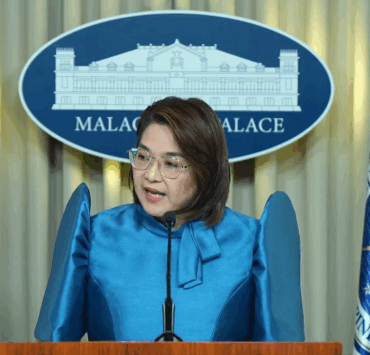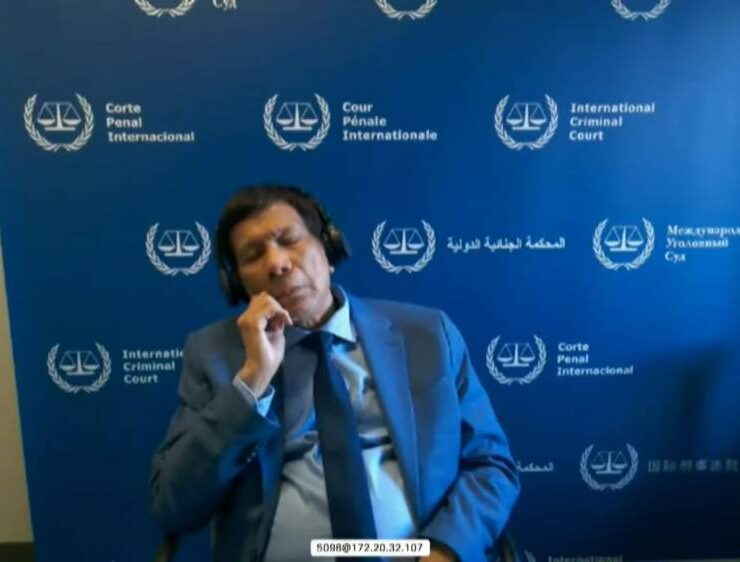Cayetano warns vs rushed dismissal of impeach raps

Sen. Alan Peter Cayetano on Thursday agreed with Senate President Francis Escudero that the senators, acting as impeachment court judges, could vote to dismiss the case against Vice President Sara Duterte without looking at the evidence against her, but he cautioned against taking such a hasty move without waiting for the Supreme Court to rule on the constitutional issues she had raised against her impeachment.
“So, what the SP (Senate President) is saying that it can be dismissed – that’s a reality,” Cayetano said in an interview with reporters. “Just because we can doesn’t mean we should. … So, we really have to take a deep breath and think what’s best for the country.”
Cayetano was responding to concerns that the Senate, acting as an impeachment court, might junk the complaint as soon as it convenes.
Instead of allowing the prosecution panel of the House of Representatives to present the articles of impeachment against Duterte, the senator-judges voted 18-5 on June 11 to return the articles of impeachment to the House of Representatives for a certification that the complaint followed the one-year ban against multiple impeachment complaints.
The vote would have likely been to dismiss the case if it had pushed through then, Cayetano said.
“You can’t start presenting evidence against the Vice President and only afterward decide whether the court had jurisdiction in the first place,” he said.
Cayetano said the Senate must avoid taking shortcuts and ensure that its actions can withstand scrutiny, not only from the public but also from the Supreme Court.
The articles of impeachment signed by 215 members of the House was sent to the Senate on Feb. 5. There were three earlier complaints filed in December that were not acted upon by the House.
The House accused Duterte of culpable violation of the Constitution, betrayal of public trust, graft and corruption, and other high crimes related to her alleged misuse of P612.5 million in confidential funds from 2022 to 2024, and for allegedly arranging the assassination of President Marcos, first lady Liza Araneta-Marcos, and Speaker Martin Romualdez if an alleged plot to kill her succeeds.
Escudero was criticized for not convening the impeachment court and starting the trial “forthwith” as provided by the Constitution.
He had set the trial to begin on July 28 when the members of the 20th Congress take their seats.
Can do ‘whatever’
In an interview on June 12, Escudero cited the expansive powers of the senators sitting as an impeachment court.
“The impeachment court can do whatever it wants to do, based on the voting. And if anyone disagrees, they are free to take it to the Supreme Court,” he said.
In a press conference on Wednesday this week, he said anyone can make a motion to dismiss the case against Duterte or to convict her.
Asked how the motions would be approved, Escudero said: “The only time a simple majority is not required is when two-thirds is needed to acquit or convict.”
Escudero later said that “everything is possible” in response to a question on whether the impeachment case could be dismissed without going through a trial.
“All motions are allowed. Don’t focus on the motion to dismiss because the motion to convict is also allowed,” he said.
Bagong Alyansang Makabayan (Bayan) chair Teddy Casiño on Thursday said they were “alarmed and flabbergasted” at the Escudero’s recent statements.
No other powers
According to Casiño, the Senate’s role was to convene as an impeachment court, conduct a trial, and hand down a decision.
The Constitution does not grant the Senate the power to “dismiss, quash, or return the Articles (of impeachment) on procedural or political grounds,” he said.
The only way for an impeached official to be acquitted is through trial, he added.
“The people deserve nothing less than the full, impartial, and transparent hearing of the charges against the Vice President. Any attempt to short-circuit this process reeks of political shielding and constitutional sabotage,” Casiño said.
Duterte has asked the Supreme Court to issue a temporary restraining order to stop the Senate from proceeding with her trial, arguing that it would be an added financial burden on the government while there is a pending legal action by the court, referring to her petition questioning the constitutionality of the impeachment case in view of the multiple complaints filed against her within one year.
‘A challenged act’
“If not immediately restrained, the respondents would be disbursing public funds to pursue a challenged act that may otherwise be declared unconstitutional by this Honorable Court,” Duterte said in a filing dated March 24 but made public by the high court only on Thursday.
The House justified its decision not to immediately move forward with the first three impeachment complaints by saying that it was an “intermediate step” to give its members a chance to “study” the complaints before they approved the fourth complaint.
But according to the vice president, the move violated the impeachment process.
She said if such a move were allowed, it would “open the floodgates to an arbitrary exercise of a power by members of a political branch, who are, undeniably, partisan.” —WITH A REPORT FROM INQUIRER RESEARCH





















